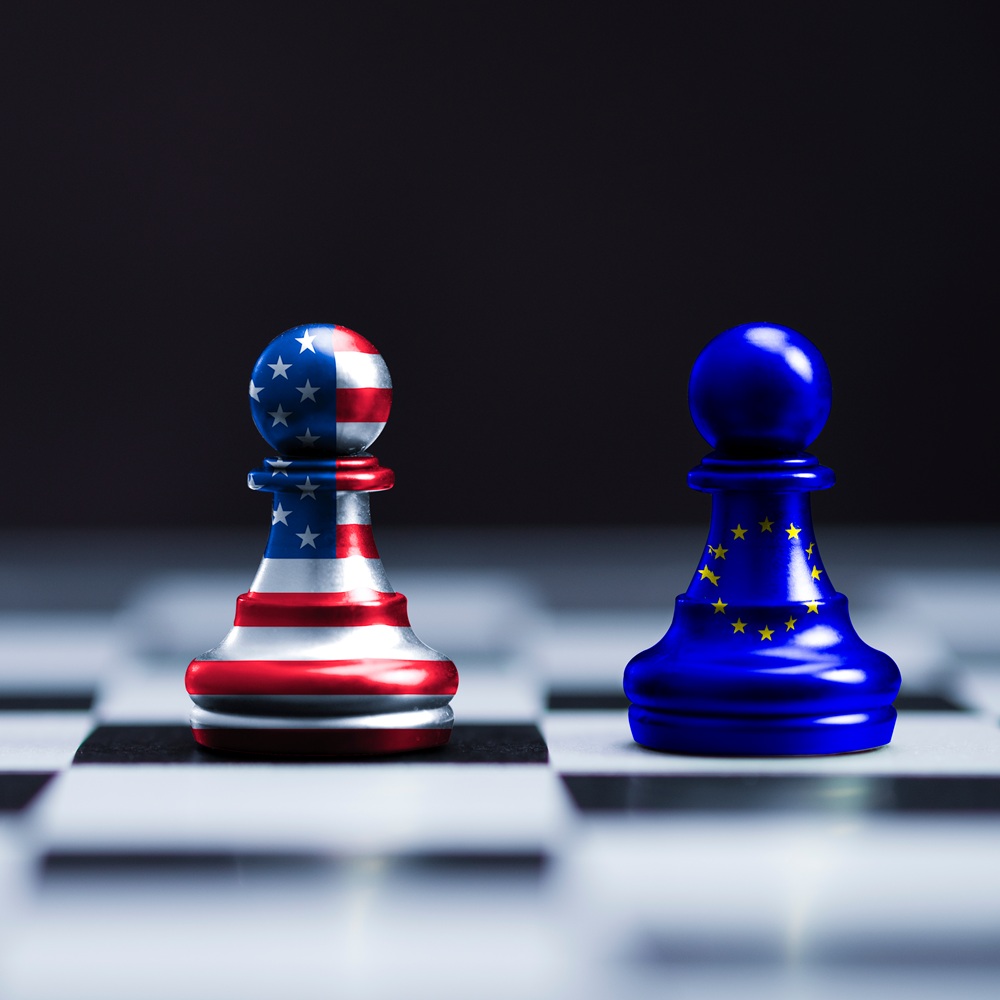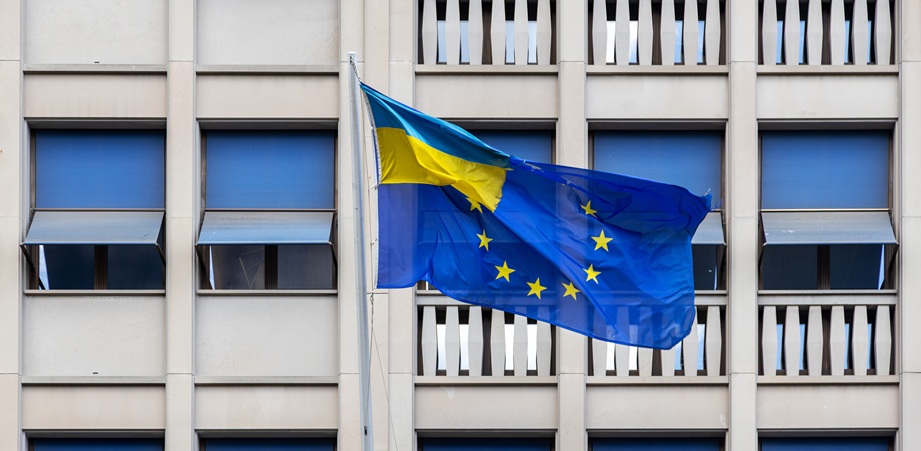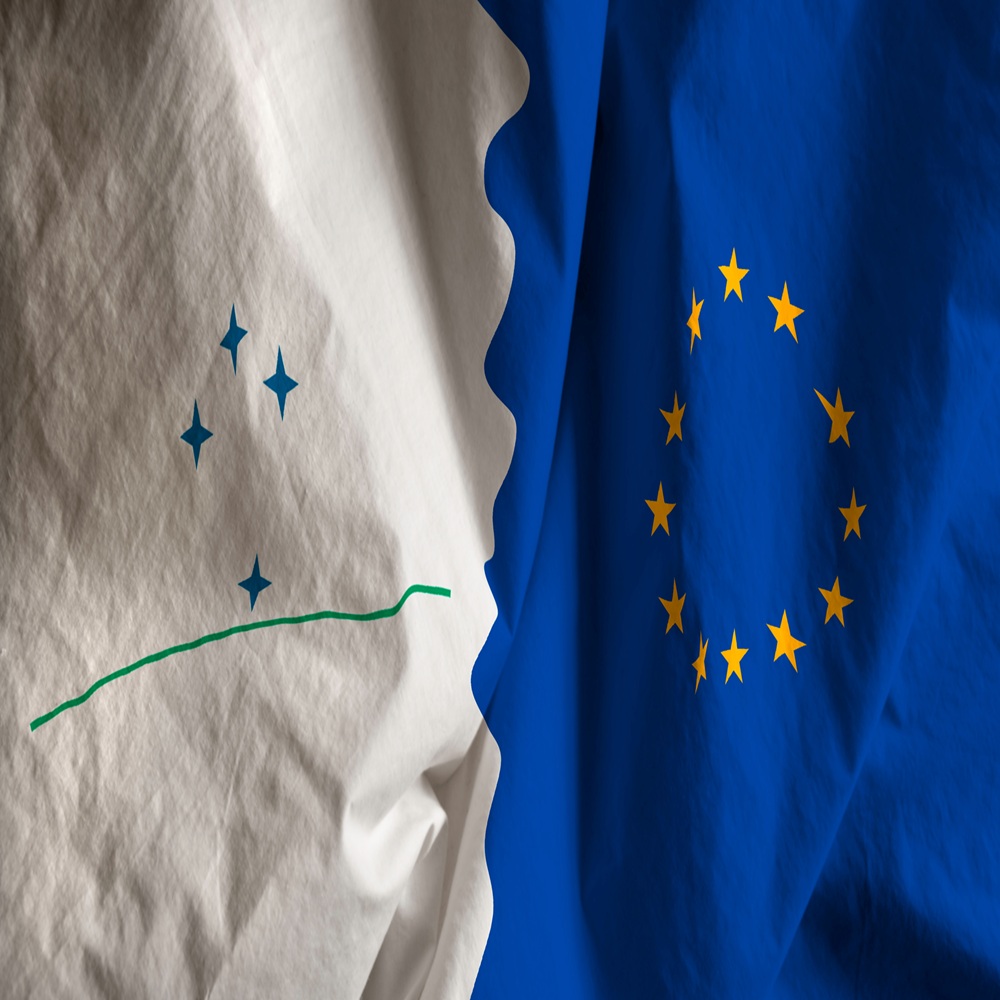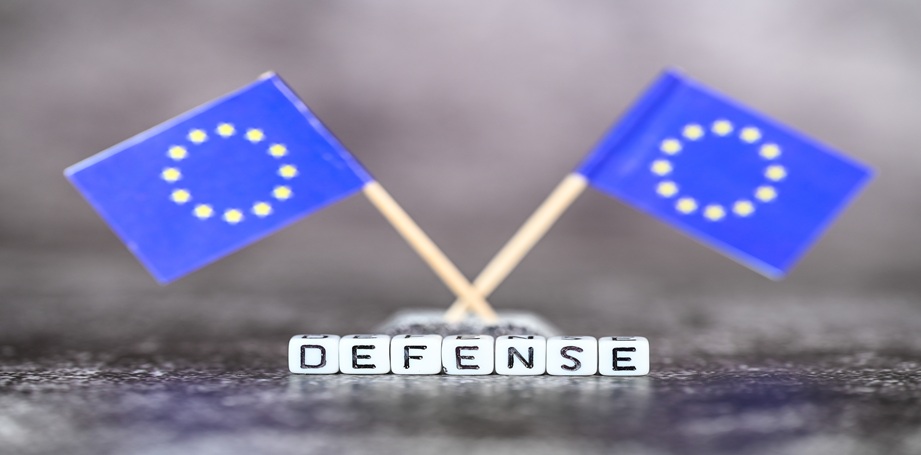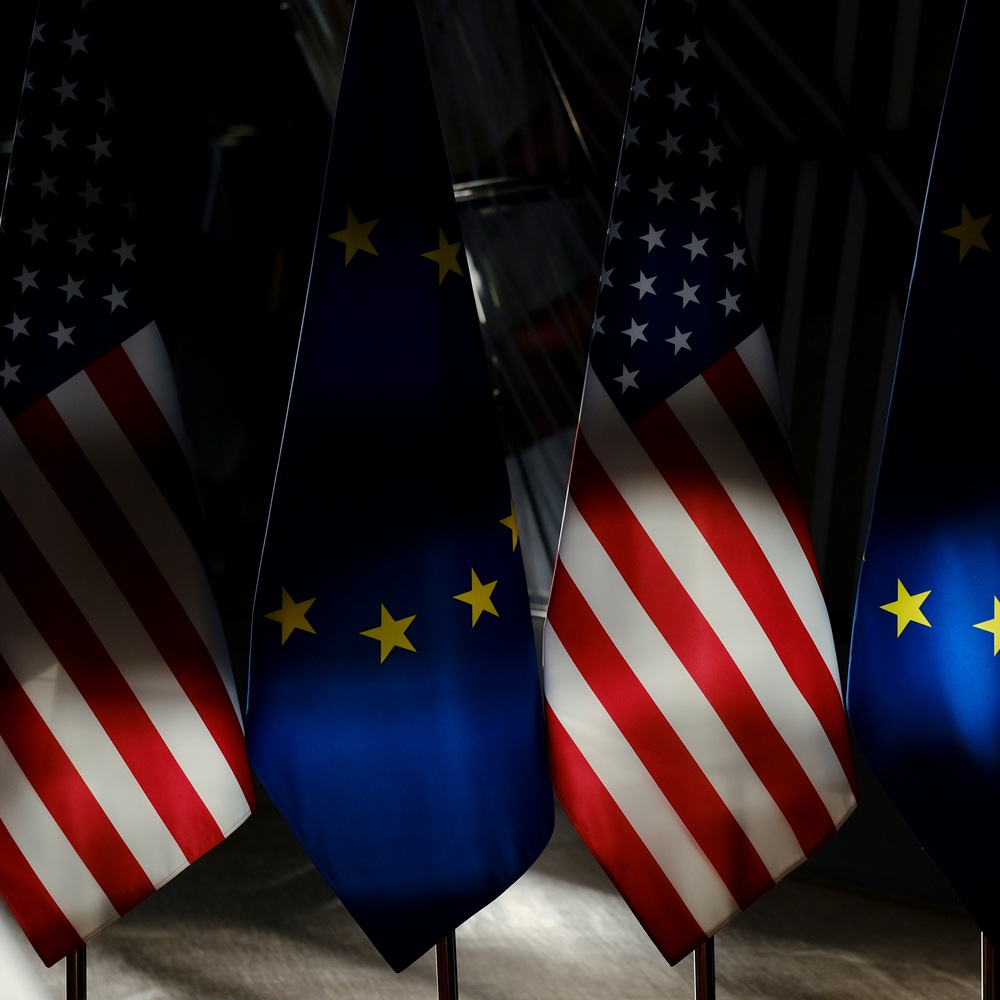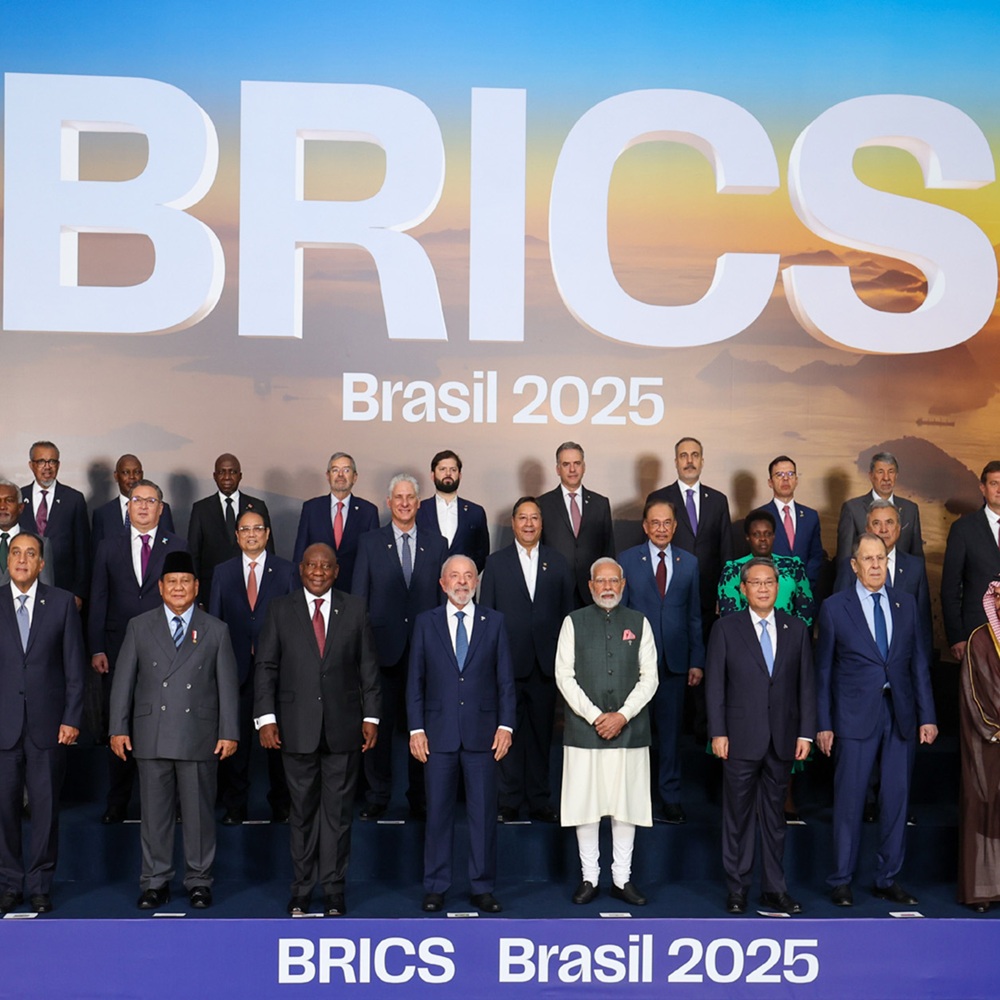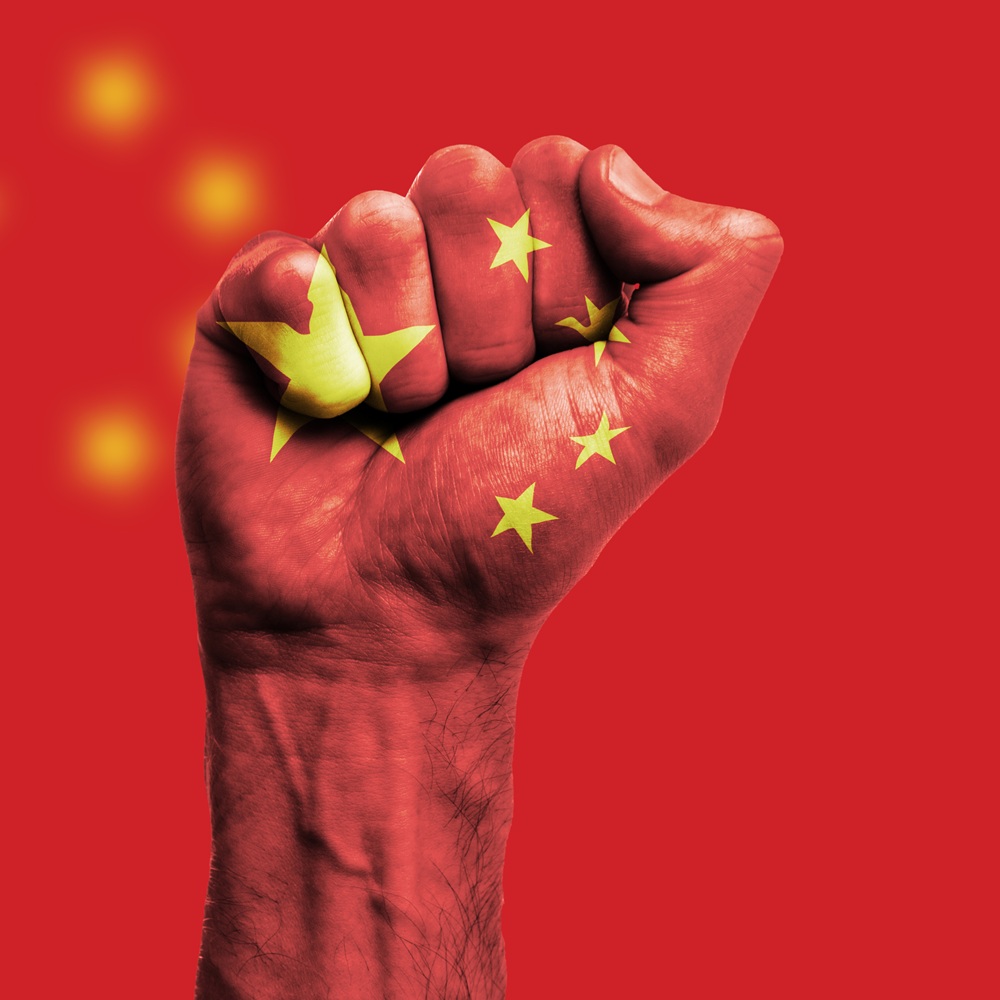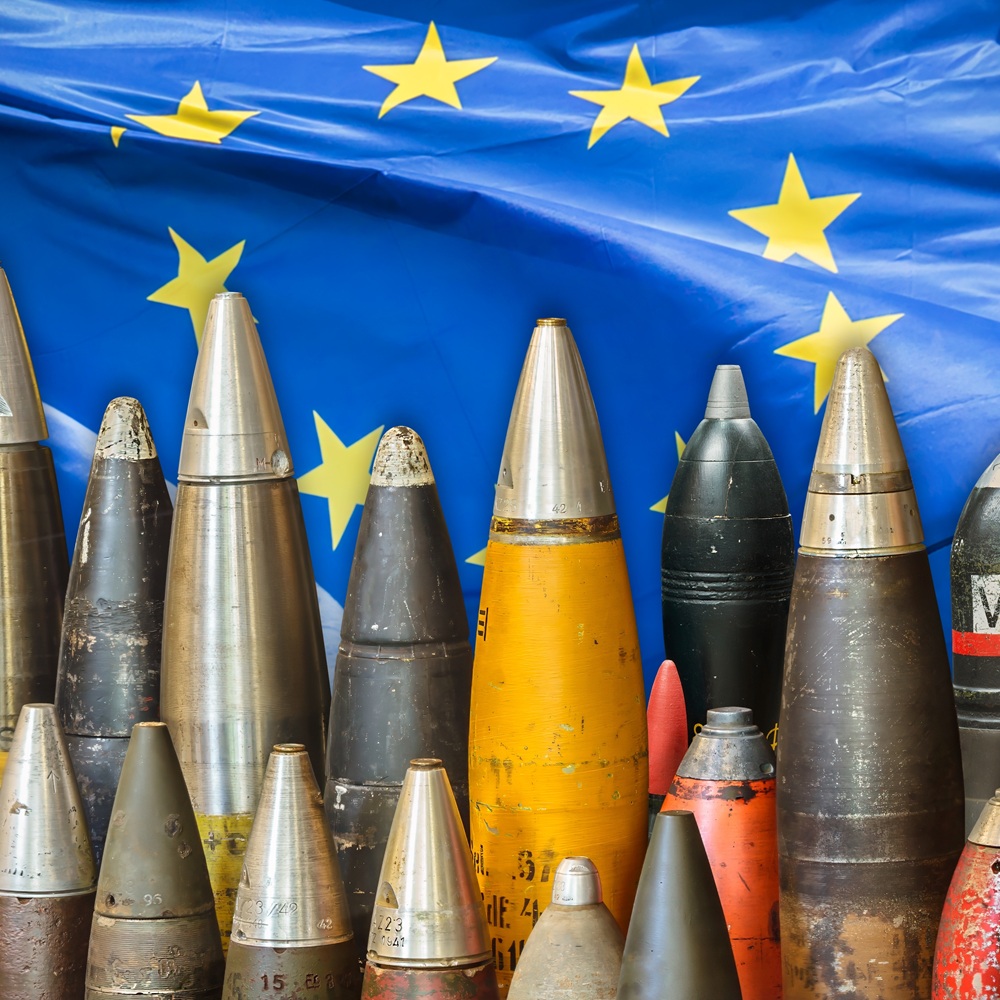
A European way of war: Towards doctrine to defend against Russia, without the US
by Garvan Walshe
Abstract Recent changes in US foreign policy and strategic posture have forced Europe to think about meeting its security needs without US support. One issue that requires a particular focus is the question of how to deter and defend against Russia in a conventional war. This article attempts a high-level assessment of European military capability and considers whether existing military doctrine is adequate. It argues that Europe should maintain its focus on NATO’s manoeuvrist mode of war fighting and identifies key capability gaps that need to be filled for (a) a coalition of the willing and (b) Europe as a whole to be able to fight in this way. It cautions against an unduly defensive, attritional method of fighting, based on conscript armies, as playing to Russia’s strengths instead of our own. Introduction War has come back to Europe and so has the need to think about how to fight it. Between 24 February 2022 and 21 January 2024, we put the need to rethink our defence to one side, because the Biden administration allowed us the luxury of being able to repurpose Cold War institutions (most obviously NATO), deterrence and habits to support Ukraine and dissuade Russia from another overt attack. This was a mixed blessing, because while it saved us the need to put our societies and economies on a war footing, it also blinded us to the need to build something new. The old system was not the best to contend with Russia’s aggression. While the US had only half an eye on Europe—with the rest of its focus on China—Western Europeans continued to free-ride on American resources. Neither Germany’s Zeitenwende, nor the aspersion cast by Emanuel Macron that ‘NATO is brain-dead’ (Macron 2019) translated into larger defence budgets, increased orders for ammunition, the conversion of civilian manufacturing to military use or the running of plants in shifts to replenish stockpiles. Only the Nordics, Baltics and Poland really moved to a war footing, and even their restructuring suffered from a desire, exposed as wishful thinking by Trump’s victory in November 2024, to keep the US involved. Now, with the US being led by an unstable pro-Russian Donald Trump and an anti-European JD Vance, the choice has been made for us. Steps are already being taken to prepare Europe’s industrial base, whether it is the creation of a European defence commissioner, Germany’s removal of its debt brake or initiatives such as the EU’s proposed Security Action for Europe (SAFE) financing instrument. But our political elite also needs to educate itself beyond these industrial and economic matters. War has once again become an essential part of what every responsible political leader needs to know. As it had been until 1945, if not 1989, some understanding of the military arts has, unfortunately, again become indispensable for European statespeople. This article will start by outlining certain concepts to help inform our debate about how we defend ourselves against Russia. It will relate them to the state of our military equipment, and pose questions about how we should fight with what we have, and how we should make more of what we need to fight in the way that gives us the maximum advantage over Russia. It will ask what elements of the existing NATO way of war should be kept, and which ought to be replaced, as a new European way of war—a European ‘doctrine’—is developed. And it will identify the key gaps in capability that need to be filled to apply such a doctrine in two scenarios: one where most of Europe confronts Russia (excluding neutrals, such as Ireland or Austria; potentially hostile states, such as Hungary and Slovakia; and Greece and Turkey, which deploy military resources to deter a conflict between themselves), and another where the burden is taken up by a coalition of the willing. This coalition is drawn up narrowly to constitute the Nordic–Baltic Eight (NB8),1 the UK, Poland and Ukraine. Other countries, for example, Czechia and the Netherlands, would currently be considered part of this coalition, but their contributions have, conservatively, been excluded for the purpose of this assessment. This article does not assume that the European military effort should replicate the American one (for the cost of replication, see Wolff 2025). Instead it seeks to assess how Europe would deter and defeat Russia in ways that exploit our advantages against the Russian military. We do not need to replace the Americans one-for-one, but nor should we replicate Russia’s relatively low-technology and low-skill warfare. That would be to give up the strongest advantages our free and technologically advanced societies provide. Centre of gravity The first concept we need to outline is the ‘centre of gravity’: the phrase, whose application to war we owe to Clausewitz (1918, 270), refers to that feature of a belligerent that will cause it to change its behaviour when subject to pressure. The aim of military strategy, he argued, was not necessarily the destruction of the enemy’s forces, still less their population, but the application of force to their centre of gravity in order to achieve your war aim. With this in view, the most important question for European military planners is, where is Putin’s, or Russia’s, centre of gravity? This question will occupy our strategists’ minds for the foreseeable future: its answer includes determining whether it is Putin, or some other group in the Russian elite, such as the military, energy producers or business oligarchs, on whom pressure should be applied, and if so what pressure is required. Under what conditions would Putin sue for peace, or be replaced by someone who would, if Russia extended its war to conventional military aggression against Europe? Only once these conditions have been identified, is it then relevant to ask how they might be brought about. This consideration of centre of gravity begs an important question: how is Russia to be deterred from attacking Europe? How can sufficiently severe consequences be imposed on Russia, bearing in mind that the loss of almost 400 aircraft (Minfin.com.ua 2025) and several thousand tanks, and close to a million men killed and wounded have not been enough to push Putin to retreat from Ukraine? It is, however, necessary to pose this question, because there is a temptation to avoid it by focusing on ‘deterrence by denial’. This idea would be to defend ourselves in the manner in which the Chinese are thought to defend themselves against the US: by preventing US forces from landing in China by attacking its large, expensive ships. This does not apply to the Russian case for two reasons: first, Russia is willing to sacrifice men and equipment in human-wave assaults; the only equipment it seems to have decided to preserve is its air force. Second, Russia has a land border with Europe, so it does not need to attack using small numbers of vulnerable ships. Denial is extremely difficult against human-wave attacks, as US forces found in Korea, and Iraqis found in the Iran–Iraq war when revolutionary Iran employed them. (See Meyer zum Felde 2024 for a deterrence by denial–focused approach.) Order of battle A second concept is the ‘order of battle’: what are the forces arranged on either side of a conflict and how do they measure up to each other? As well as military units, it is worthwhile also considering the broader elements of societal strength—economic, political and cultural—that each side has, and how these contribute to the war effort. For example, our open societies leave us more vulnerable to hybrid attacks and disinformation, but on the other hand supply great strength and flexibility. Democratic societies do not wait for the government to tell them what to do, but organise social defence in ways that dictatorships find more difficult; the market economy possesses enormous flexibility that centrally planned systems do not; and an entrepreneurial can-do culture can also produce superior military performance through the concept of ‘mission command’ (see below). But the first question is who would be fighting? Sometimes pieces are written as if it would only be Britain and France confronting Russia (Barker et al. 2025), but borders have shifted since the Cold War: Eastern Europe, including the highly capable Polish and Finnish militaries, as well, of course, as Europe’s strongest army, Ukraine’s, would be arrayed against Moscow, not operating under its orders. Europe’s total military-age population is considerably greater than Russia’s. If Austria, Hungary, Ireland and Slovakia are excluded for political reasons, and Greece and Turkey as well, because they will wish to preserve resources in case a conflict breaks out between them, ‘Europe’ has 89.5 million military-age men and 88 million military-age women, compared to Russia’s 31 million military-age men and 33 million military-age women.2 The question of how such forces are recruited and generated, particularly in the economically more successful parts of Europe, is of course relevant, but the sheer capacity to provide sufficient personnel is not in doubt. It is useful to consider the matter of mobilisation. Russia was in transition from a conscript to a professional army when it launched its attack on Ukraine. It still mobilises 160,000 men per year, mostly to fill rearguard positions and free up front-line deployment for professional troops. This is equivalent to 17% of the annual cohort of young men.3 Europe (as defined above) could generate similar forces without much difficulty. A one-year cohort of the European population includes 2.7 million men and 2.5 million women. Even if it limited itself to calling up men, it would only need to recruit 6% of the population. Such a number would be feasible with a voluntary reserve service programme, and would not require universal conscription. Considering the countries most at risk of Russian aggression, and most likely to need to defend against it, presents a starker picture. The NB8 plus Poland and the UK between them have an annual cohort of 7.7 million men and 7.3 million women. If the male population of these countries took part in military service at the same rate as Russians, this would generate 130,000 personnel, requiring an additional 30,000 female personnel to match Russian numbers. This would require a female reserve participation rate of 4%, which is an achievable figure. For example, at least 25% of Norway’s annual conscription quota comprises women. Despite a recent surge in calls to reintroduce universal military service in Europe, this is not necessarily advisable in all countries. Training a large cohort of conscripts takes resources away from exercises and advanced training for professional officers. While it may be justified for small nations on the front line, it is not the best use of resources for larger countries. The required manpower needs can in most cases be met by a selective reserve system. European stocks of platforms (as distinct from ammunition stocks, which are dangerously low) are also not outrageously out of balance with the requirement for a mission against Russia, though this is partly due to Ukraine’s destruction of Russian equipment since 2022. The following (table 1) compares stocks of fighter jets, main battle tanks and artillery pieces across several groups of European countries (some including Ukraine) versus Russia. This analysis is necessarily somewhat crude, as it excludes infantry fighting vehicles, mortars and other equipment. It also completely sets aside analysis of naval forces. Its fighter aircraft figures comprise fourth-generation fighters, old fighters (predating the fourth generation or the Warsaw Pact) and F35s.4 Finally, these figures do not take future production (either European or Russian) or the evolution of land and air drones into account (International Institute for Strategic Studies 2024). Source: International Institute for Strategic Studies (2024). Note: This table compares the main platforms (fighter jets, main battle tanks and artillery pieces, including rocket artillery) that various European countries have at their disposal. Countries are placed in different categories and then compared against Russia. Each category also appears in two variants: one including Ukraine, and one that does not include Ukrainian forces. The ‘NB8+ coalition’ is the NB8 plus the UK and Poland. Non-neutral Europe means EU members plus the UK and Norway, but minus Ireland, Austria, Hungary and Slovakia. Using this table one can see, for example, that the NB8+ coalition has 542 fewer fighter jets at its disposal than Russia but essentially the same number of main battle tanks. With the exception of the scenario in which only the NB8+ coalition and Ukraine face off against Russia, Europe currently has approximately the required numbers of platforms to resist a Russian attack (bearing in mind a deficit in artillery pieces if Ukraine is not included). This leads to the following conclusions: • Ukraine needs to be considered an integral part of European defence against Russia, and its defeat would allow Russia to focus its forces on EU territory.• The coalition faces a notable air-power shortage in confronting Russia. While it has enough planes to deter Russian use of its aerospace, it does not have sufficient equipment to attempt to establish air superiority.• At an overall European level the priority should not be buying new platforms. Platform acquisition should be part of any rearmament plan, but priorities should be determined by the specific needs of a campaign against Russia, with importance given to filling the key gaps needed to conduct such a campaign. Platforms, ammunition and network-centric warfare The analysis above is only a first approximation of military strength. It considers only equipment and mobilisation potential, rather than force generation, and concentrates on land and air forces, setting aside the navy because a Euro-Russian conventional war would largely be fought on land. (The air force calculations do include naval aviation equipment, however, as these could be brought to bear). It also deals only with the main ‘platforms’: main battle tanks, fighter planes and artillery pieces, ignoring armoured personnel carriers and infantry fighting vehicles, engineering and support equipment, and, most importantly, ammunition. Simply replicating Russian numbers of platforms without considering communications, software and unmanned systems risks equipping ourselves to fight the last war (Tallis 2025). The spectrum that runs between a platform, which serves to move weapons systems into a place where they can be fired, and a piece of ammunition, fired from a platform, is another dimension of analysis. For example, during the Second World War the distinction was clear: an artillery shell was ammunition; an artillery piece a platform. But how should one categorise a cruise missile, which could be launched from a plane (so it appears to be ammunition launched from a platform), or directly from land, in which case it could arguably be a platform on its own? What is the difference between a cruise missile and a long-range drone? The war in Ukraine has seen the rapid development of short-range single-use drones that behave, in some ways, like super-intelligent artillery shells; and actual shells have incorporated guidance systems, and even propulsion systems, so that they have become what are known as ‘loitering munitions’. The point here is that strength is not just measured by platforms, but by the things that can be delivered to the battlefield with them (or independently of them), and an assessment of military strength needs to include an understanding of stocks of ammunition, the ability to replenish it and to fire it at where it is needed. This brings us to the idea of networks. War has always given the advantage to the side that could bring force to bear in a coordinated fashion while itself avoiding being the target of a coordinated enemy attack. The latest iteration of this is known as ‘network-centric warfare’, which, in its ideal form, means that every participant in the battle, from planes and ships all the way down to individual soldiers and drones can observe the ‘battlespace’ and communicate information about it to the right layer of command. Using this information, commanders, assisted by artificial intelligence, can decide where ‘effect’ is to be concentrated to bring about maximum damage to the enemy, more quickly than it can cause damage. This capability is not necessarily confined to the most expensive high-tech armies. Ukraine has shown how off-the-shelf electronic components can be added to existing systems to improve them (for example, to allow its artillery to concentrate fire on a single target despite the artillery systems themselves being dispersed). Precision If in the popular imagination precision weapons are used mainly to reduce collateral damage (and this was indeed their main use during the campaigns against terrorist groups in the first two decades of this century), in high-intensity war their advantage is that they conserve resources and time. Even if an individual precision artillery shell is more expensive, it is more useful to be able to use one or two guided shells to hit a target than 30 or 40 unguided ones. Not only is less ammunition used, but fewer troops are needed to operate it, and the wear and tear on the artillery pieces is considerably less. Precision results in greater ‘effect’ from the inputs to the process. Though sometimes presented as its opposite, precision should be understood as a way of delivering ‘mass’; this concept, also from Clausewitz (1918, 98), refers to the quantity of force that can be brought to bear against an enemy at a particular time. It matters because fighting is not a continuous linear process where the amount of force one applies has an effect in proportion to its quantity—in war having more power at one place at the right time means you will win the battle and the enemy will be weaker for the next one. The slightly stronger force can often inflict damage on the weaker one in a way that is disproportionate to the difference in their strength. To take a simple example for the purposes of illustration, suppose we start with 100 tanks, and so do they. Thanks to our commander’s skill we are able to concentrate 50 of our tanks against 40 of theirs. We lose 10 tanks, they lose 35. Now we have 90 tanks, they have 65. In this example our ability to get those extra 10 tanks in the right place has given us an advantage that can be pressed further in the next battle. It is these facts that underpin the approach that NATO, and the West more broadly, has applied to fighting. Although Western democracies have been able, due to their superior economic systems and technological advantage, to outproduce their enemies, winning a war of attrition is not where they consider their advantage to come from. Instead they emphasise their speed of movement and thought, and their ability to confuse their enemies, tricking them into dividing or misdirecting their forces, and then pouncing at the right moment; this is the ‘manoeuvrist’ creed of war, in which we fight smart and overcome the enemy by more than brute force. It is important not to draw the distinction between attrition and manoeuvre too crudely. Manoeuvre warfare is easier when you have more and better kit, and your leaders are informed by better intelligence obtained through technological as well as human sources. It also takes advantage of the characteristics of free societies. Manoeuvre warfare is strengthened by ‘mission command’: the notion that subordinate officers are given the ability to decide exactly how to fulfil their orders. This gives Western militaries a flexibility that is absent from the armies of dictatorships, in which such freedom is rarely granted,5 but of course this depends on officers and soldiers being sufficiently well-trained, and possessing a good enough level of general education, to operate independently. It is the best way for us, as free and well-educated peoples, to fight—it is not necessarily the best for everyone. A manoeuvrist force, is, as the name suggests, on the move. It is constantly advancing, communicating its changing position, attempting to bypass and confuse the enemy. It operates at a high tempo in order to overwhelm the enemy mentally as well as physically, and the ability to sustain this type of fighting informs training, equipment command and intelligence: ‘the key to winning battles is to have greater forces at the key location than does the enemy. The trick is to outwit the enemy and thus out-concentrate him at the right time’ (Warden 1998, 79). This matters for learning the right lessons from Ukraine’s fight for survival. Ukraine has only been able to master some of the lessons of manoeuvrist warfare. It has been hampered by its limited capacity in the air, which slows it down and makes it hard to break Russian lines except with artillery and long-range fire (such as the famous HIMARS rockets). It is in transition from Soviet- to Western-style command. But it has also shown tremendous capacity to innovate, particularly in its use of drones to hold a defensive line. Ukraine’s tremendous first-person drone capacity allows it to stop Russian attacks while risking far fewer troops (drone operators work behind the lines, where they are at much lower risk than the men in the trenches) and even compensate for artillery.6 These principles feed into NATO’s existing doctrine (NATO 2022), which involves identifying the enemy’s centre of gravity, achieving air superiority to deliver firepower against its command and control nodes, and then overcoming its disoriented forces at speed. It relies on synthesising intelligence through networks of sensors and exploiting the information they provide to deploy massed precision against them. Such operations, however, require certain capabilities that depend on equipment and structures provided mostly by the US. The first of these is NATO’s command structure. NATO’s armies have a single command structure that conducts exercises together. At the top is the Supreme Allied Commander (American) and the Deputy Supreme Allied Commander (European). American units are integrated throughout the force structure. European forces will need to plan, exercise and be ready to fight without these American elements—it is not merely a matter of detaching them. The second is the intelligence and planning capability to carry out those war plans and adapt to the evolving battle. These integrate intelligence gathered from sensors, satellites and human sources, and artificial intelligence is increasingly involved in its processing as extremely large amounts of data must be handled quickly and secretly. As well as certain sensors (satellites and aircraft), the US’s processing software is also vital here, though Europeans have equivalent capabilities at reduced scale. Third are the sensors, software and missiles needed to suppress enemy air defences (SEAD). SEAD missions are a prerequisite for establishing air superiority against adversaries that possess sophisticated air defence systems, such as Russia. Indeed, the failure of Russia’s SEAD missions in Ukraine, and Ukraine’s ability to deter Russian aviation, may also indicate that an effective air defence is easier to mount than had been thought.7 Europe, however, currently lacks the ability to make the latest generation of anti-radiation missiles (which target enemy radar) essential to the success of SEAD. India’s poor performance against Pakistan, where it appears to have attempted to conduct deep strikes against its rival without conducting SEAD, underlines the importance of these capabilities (Economist 2025). It will take some years to develop them, and this needs to be prioritised. A full discussion of the requirements for successful SEAD against Russia can be found in Bronk and Watling (2025). Finally there is the question of Russia’s nuclear threats. Though the UK and France possess ‘strategic’ nuclear arsenals, these, because they threaten the complete destruction of the world, can only credibly deter the most extreme sort of attack. Russia and the US both have low-yield or ‘tactical’ nuclear weapons, and Russia has regularly threatened to use them. These threats would significantly complicate elements of a European campaign to deter Russia, which might involve actions such as seizing Kaliningrad or advancing from Finland towards the environs of St Petersburg. Europe needs the ability to restrict Russia to conventional weapons in such circumstances. Though such deterrence does not have to be supplied using tactical nuclear weapons of our own (Hoffmann 2021), these would be the most straightforward instrument for this purpose. As the UK’s nuclear weapons systems are submarine launched (and use American missiles), France’s arsenal would have to be expanded to provide this capability, and be able to be deployed closer to the front as, for example, Donald Tusk has hinted.8 Conclusion and recommendations Fighting without the Americans does not necessarily mean we need to replace exactly what they used to supply. Instead we need to understand the mission required, which is to deter Russia by credibly showing how Russian forces would be defeated, in the field, should Putin attempt to attack us. In an ideal world this credible threat would cause the military to remove Putin should he attempt further adventurism against Europe, but we cannot rely on such an eventuality. This means that we have to think carefully about how we would fight and sustain political support for a major European war. The good news is that provided that the bulk of Europe is willing to contribute, we have the resources and equipment needed to defeat Russia. Upgrades, in particular in SEAD capability and tactical nuclear weapons, need to be made, but they are not out of reach. In addition, we have a solid basis in military doctrine that can be used to organise a campaign that takes advantage of our military cultures and technological lead. The less good news is that the countries that can be guaranteed to make up a ‘coalition of the willing’ (the NB8 plus Poland, the UK and Ukraine) would currently struggle to mount an offensive campaign on their own. They would, in particular, struggle to field a sufficiently large air force to win air superiority over Russia, though they have enough aircraft to deny Russia air superiority of its own. This would limit their ability to put manoeuvrist doctrine into practice, and, notwithstanding advances in drone warfare pioneered by the Ukrainians, could cause them to fall back to static defence and attritional warfare, as illustrated by the proposed Baltic Defence Line. Such an approach would stretch the human resources of a coalition of the willing extremely thin. It is perhaps ironic that Europe as a whole could win a war of attrition against Russia, but it also would not have to, as it could prosecute a campaign of manoeuvre against the Russian military and Putin’s state. Accordingly my recommendations are laid out below. Europe should focus on what it needs to defeat Russia, rather than what would be required to replace the American commitment to NATO. Nevertheless, it should not, as a whole, revert to using conscript-based armies designed to fight a war of attrition against Russia. These give up the greatest advantages of technologically advanced free societies and would leave us fighting the kind of war Russia would want us to fight. Certain small front-line states might need to make different calculations. Universal military service might be required so that they can, in extremis, mount a defensive campaign—for example, if Finland and the Baltic states were required to fight on their own without support from European allies. This highly extreme scenario is sufficiently unlikely that it should not form the basis of other countries’ military planning. The core ‘coalition of the willing’—the Nordic countries, the Baltic states, plus Poland, the UK and Ukraine—could defend themselves against Russia, and with some effort would be able to conduct an offensive campaign to bring about Russian defeat. They would need, however, to make important improvements to their defence. The coalition would require an integrated command structure and a programme of exercises. The expansion of the UK-led Joint Expeditionary Force and the UK’s command headquarters would be a suitable nucleus for such capability. The coalition would face a manpower deficit compared to Russia, and matching Russian mobilised reserve levels would be a challenge. The coalition could, however, match Russian mobilisation levels with a Swedish- or Norwegian-style selective military service programme for young men and women (it could achieve sufficient coverage for defensive purposes by recruiting 16% of men and 6% of women each year). The coalition is also severely short of aircraft with which to pursue an air superiority campaign against Russia. Though it would fare better than Ukraine on its own, increasing the size of the coalition’s air forces must be a priority, and the risk of over-dependence on the F35 needs to be considered. Though ‘kill switches’ are a myth, a sovereign spare parts supply chain (as Finland is creating) and sovereign intelligence software (as used by Israel) are required to reduce the risk of US unreliability. The coalition would also need to consider replacing the F35’s intelligence and command capabilities with replacements that could operate on European aircraft, such as the Gripen or Rafale. The lack of stealth capability would also hamper the coalition’s air forces until a sixth-generation fighter could be developed. Europe as a whole has forces of the necessary scale to conduct operations against Russia. Its shortfalls in ammunition production and inefficiencies due to the diversity of its equipment have been covered elsewhere. Some inefficiency is likely to persist as long as Europe remains a relatively decentralised continent, but it is likely to be better to bear the extra cost now, than waste time with the ambitious political integration projects required to eliminate it quickly. Europe as a whole would need to develop its own command structure. At this level it may be possible to repurpose NATO’s Supreme Headquarters Allied Powers Europe (SHAPE) using the Berlin Plus process, though care would need to be taken to avoid a potentially hostile US, as well as unfriendly NATO members, such as Hungary, blocking operations. As urgent as ammunition production (a category that includes missiles as well as artillery) is the manufacture of equipment to conduct SEAD campaigns. Reviving European capacity to produce anti-radiation missiles and in intelligence capability to uncover targets for them should be a matter of the highest priority. The final priority area is the expansion of Europe’s tactical nuclear capability. Though the French and British strategic arsenals can provide the ultimate deterrence against Russia, tactical, or low-yield, weapons are needed to deter Russia from threatening European forces with its tactical nuclear weapons. As the British programme is not suitable, these would have to be based on the French programme, and questions related to how this expansion would be paid for, and how tactical nuclear use would be authorised, would need to be addressed. Footnotes1. Iceland, Norway, Sweden, Denmark, Finland, Estonia, Lithuania and Latvia.2. These estimates are based on Eurostat data for the EU member states, the Office for National Statistics population projections for the UK and the most recent available data for Russia, which is based on UN data not currently available but which have been reported on Wikipedia. The Russian data are from 2012, so these overestimate Russian demographic strength slightly. The military age calculation aggregates the standard five-year demographic groups between 20 and 49. Obviously a military may mobilise younger and older people as well, but the comparison remains valid.3. In this case, by taking the 10-year sample of 15–24-year-olds and dividing it by 10 to smooth out fluctuations. Again, because of declining Russian demographics (even without accounting for losses due to the war), this is likely to be an underestimate of the proportion mobilised (because the total number of 18-year-old men is lower than the statistics indicate).4. F35s are easily the most advanced fighter available, and the only one reliably able to penetrate Russian air defences before suppression of enemy air defence missions have been accomplished. The deterioration in relations with the US, however, poses questions about the ongoing reliability of the supply chain associated with them. Though ‘kill-switches’ are a myth, European countries will need to maintain their own spare parts supply and software upgrade path if they are to gain the most out of the aircraft in the long run. Finland, for example, is establishing its own sovereign spare parts supply, and Israel has a sovereign software intelligence solution on its F35s.5. An exception was the Wehrmacht, which inherited mission command from the Prussian Army; however, its generals found themselves micromanaged by Hitler, which (fortunately) affected their performance.6. These small drones are very different from those deployed in the early stages of the war such as the Bayraktar TB2 or Western drones such as the Reaper. They are much closer to ammunition than platforms, and (in good weather, at least) replace artillery or close air support.7. It could also indicate that Russian aviation is not as good as had been thought, but it would be dangerous to plan on that assumption.8. Author’s conversation with a Polish official who wished to remain anonymous.ReferencesBarker K., Smialek J., Erlanger S. (2025). Europe prepares to face Russia as Trump’s America steps back. New York Times, 24 February.Bronk J., Watling J. (2025). Rebalancing joint fires to deter Russia. Royal United Services Institute Occasional Paper. London, 15 April. https://static.rusi.org/rebalancing-european-joint-fires-to-deter-russia.pdf. Accessed 15 April 2025.Clausewitz K. von. (1918). On War. Trans. Graham J. J. (London: K. Paul Trench, Trubner & Co.)Dalaaker A. (2017). Statement by Norway on gender equality in the military – universal conscription. Organisation for Co-operation and Security in Europe. 8 March. https://www.osce.org/files/f/documents/b/9/304861.pdf. Accessed 9 April 2025.Economist. (2025). Chinese weapons gave Pakistan a new edge against India. 15 May. https://www.economist.com/asia/2025/05/15/chinese-weapons-gave-pakistan-a-new-edge-against-india. Accessed 16 May 2025.Hackett M., Nagl J. (2024). A long hard year. Russia–Ukraine war lessons learned 2023. Parameters, 54(3), 41–52.Hoffmann F. (2021). Strategic non-nuclear weapons and strategic stability – promoting trust through technical understanding. Fondation pour la recherche strategique. https://frstrategie.org/sites/default/files/documents/programmes/Programme TNP - P5/2021/202103.pdf. Accessed 9 April 2025.International Institute for Strategic Studies. (2024). The military balance. London: Routledge.Meyer zum Felde R. (2024). Kann sich Europa konventionell gegen eine militärische Bedrohung durch Russland behaupten? Sirius, 8(3), 267–83.Minfin.com.ua. (2025). Casualties of the Russian troops in Ukraine. Updated daily. https://index.minfin.com.ua/en/russian-invading/casualties/. Accessed 5 March 2025.Nagl J., Crombe K. (2024). A call to action: Lessons from Ukraine for the future force. Carlisle, PA: US Army War College Press.NATO. (2022). Allied joint doctrine. December. https://www.gov.uk/government/collections/allied-joint-publication-ajp. Accessed 9 April 2025.Tallis B. (2025). Emerging defence: Offset and competitive strategies for Europe. Democratic Strategy Initiative. https://www.democratic-strategy.net/_files/ugd/dcfff6_ca54854b6dc7499e829a5fa4d7b01b74.pdf. Accessed 16 March 2025.Warden J. (1998). The air campaign: Planning for combat. Washington, DC: National Defence University Press.Wolff G., Burlikov A. (2025). Defending Europe without the US: First estimates of what is needed. Bruegel, 21 February. https://www.bruegel.org/analysis/defending-europe-without-us-first-estimates-what-needed. Accessed 9 April 2025.









